QARC People
Learn more about the teams and committees that contribute to the work within QARC.
There are 40 people in the QARC team and we are growing every day. The team is made up of speech pathologists, psychologists, IT professionals, linguists, occupational therapists, researchers and app developers.
Director
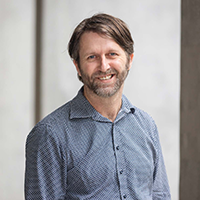 Professor David Copland, Director
Professor David Copland, Director
David is a Speech Pathologist and Professorial Research Fellow at The University of Queensland, School of Health and Rehabilitation Sciences. David’s research seeks to improve outcomes for people with aphasia through the development of new assessments and treatments and identifying better predictors of recovery and treatment response. His research also aims to improve aphasia management through testing principles of neuroplasticity and understanding the neurobiological basis of language recovery and treatment using neuroimaging.
David received the inaugural NHMRC Research Excellence Award as Australia’s top-ranked NHMRC Clinical Career Development Fellow. He currently leads three NHMRC trials on aphasia recovery and is Co-Director of the NHMRC Aphasia CRE where he leads the Neurobiological and Psychosocial Predictors of the Recovery Program. David and Emerita Professor Linda Worrall developed the Aphasia LIFT program that is the basis for the new CHAT program which is a key priority of QARC.
Researchers
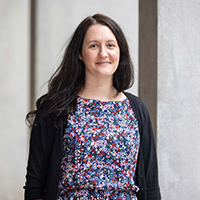
Dr Sarah Wallace - Postdoctoral Researcher
Sarah is a Speech Pathologist and National Health and Medical Research Council Emerging Leadership Research Fellow. Sarah’s research themes include: (1) Enabling meaningful change through an understanding of the patient perspective, and development and evaluation of interventions which seek to produce meaningful outcomes for people living with aphasia; and (2) Measuring meaningful outcomes and improving outcome measurement methods and practices in research and clinical settings.
Within QARC, Sarah leads research to develop a minimum datasetfor aphasia services, the co-design of the QARC, and the implementation of the CommuniCATE program.
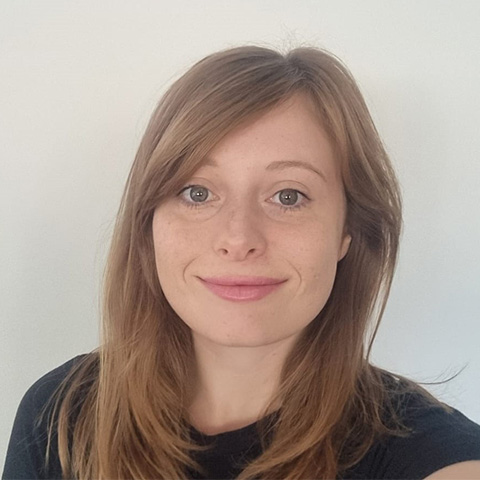 Dr Lauren Fothergill - Research Fellow
Dr Lauren Fothergill - Research Fellow
Lauren is a Research Fellow at QARC, within the School of Health and Rehabilitation Sciences at The University of Queensland. She holds degrees in Public Health and Gerontology, with research interests in ageing, digital health, and evaluation methods. Her doctoral research assessed a digital intervention designed to support independence among older adults in the United Kingdom. At QARC, Lauren contributes to the Better Conversations about Care project, coordinating the co-design of a tool aimed at identifying the communication needs and preferences of older adults accessing aged care services.
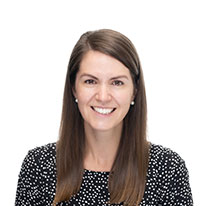 Dr Jade Dignam - Postdoctoral Researcher
Dr Jade Dignam - Postdoctoral Researcher
Jade is a Certified Practicing Speech Pathologist who graduated from Speech Pathology at UQ in 2008. She has worked clinically across acute and rehabilitation health services in Queensland and New South Wales. Jade completed her PhD at The University of Queensland in 2016 and her research investigated the efficacy of an intensive, comprehensive aphasia program. Her research interests include intensity and dose of aphasia rehabilitation, comprehensive aphasia therapy programs and cognition and aphasia rehabilitation. Jade enjoys conducting clinically-based research with meaningful outcomes for people with aphasia and speech pathologists. Jade is currently leading a feasibility study for the implementation of the Comprehensive High-Dose Aphasia Treatment (CHAT) program.
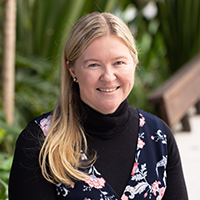 Dr Kirstine Shrubsole - Research Fellow
Dr Kirstine Shrubsole - Research Fellow
Kirstine is an implementation scientist and National Health and Medical Research Council (NHMRC) Emerging Leadership Research Fellow. Kirstine’s research aims to improve implementation of evidence into practice in aphasia services. Within QARC, Kirstine is currently leading a research program to develop an implementation toolkit for speech pathologists. She collaborates with the QARC team to evaluate implementation on several projects including: the Comprehensive High-Dose Aphasia Treatment (CHAT) program; the Better Conversations about Care project, and The Right Treatment for the Right Person at the Right Time project. Kirstine is also the co-founder and Deputy Lead of the Collaboration of Aphasia Triallists’ Implementation Science in Aphasia working group.
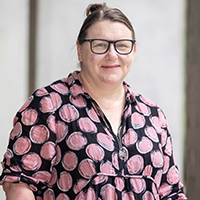 Michelle King - Postdoctoral Research Fellow
Michelle King - Postdoctoral Research Fellow
Michelle is a sociologist and lawyer: her research focuses on decision-making and the operation of law and regulation in practice for people with disabilities and other impairments to communication and legal capacity. Her work examines decision-making in practice in a range of areas, including health and aged care, banking and finance, income support, voting, and the NDIS.
At QARC, Michelle works on the Better Conversations about Care project, coordinating the lived experience and co-design of the research. Michelle is also a health consumer and disability advocate, with experience in strategic policy development, implementation, and evaluation, including the co-design of Queensland Health’s strategy for transition to adulthood health care, and Australia's National Living Evidence Guidelines for Covid-19 and Monkeypox.
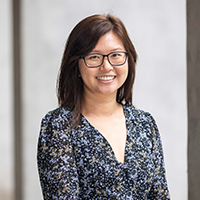 Dr Jennifer Lee - Postdoctoral research fellow
Dr Jennifer Lee - Postdoctoral research fellow
Jen is a Research Officer. She has completed degrees in science and neuroscience from the University of Sydney, and is experienced with neuroimaging, psychology, and ageing research. Jen’s doctoral research investigated changes in music and language processing in healthy ageing adults. She has also worked on an NHMRC research trial which investigated the benefits of music listening in people with aphasia after having a stroke. In her current role with QARC, Jen will support research aiming to improve digital access for people with communication disability.
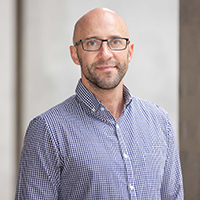 Dr Sam Harvey - Postdoctoral research fellow
Dr Sam Harvey - Postdoctoral research fellow
Sam Harvey is a postdoctoral research fellow at the Queensland Aphasia Research Centre (QARC), The University of Queensland, and a research affiliate with the CRE Aphasia Recovery and Rehabilitation. His research focuses on improving the effectiveness, quality and equity of aphasia services. He current leading and contributes to multiple projects across Australia and internationally that address aphasia treatment, service evaluation and emergency preparedness for people with communication disabilities.
Sam was awarded a prestigious Fulbright Postdoctoral Scholarship in 2024 and is a Chief Investigator on several nationally and internationally funded projects, including an MRFF Cardiovascular Mission grant to trial a novel aphasia telerehabilitation program. His work has contributed to clinical practice guideline updates and international implementation tools such as the Aphasia Therapy Finder.
Sam is a member of the Collaboration of Aphasia Trialists and the International Collaborative Network of N-of-1 Trials and Single-Case Designs. He previously served as an open science ambassador with CSDisseminate and a Catalyst Ambassador with the Australian Academy of Technological Sciences and Engineering and continues to play an active role in researcher development and student supervision.
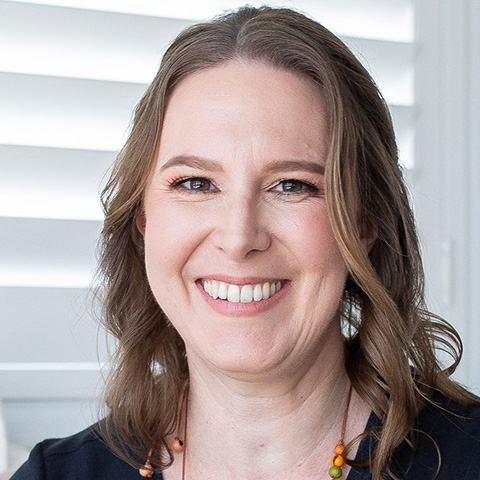 Kyla Hudson
Kyla Hudson
Kyla is a speech-language pathologist and Research Fellow within the Queensland Aphasia Research Centre and the School of Health and Rehabilitation Sciences at The University of Queensland. Her main research interests are in aphasia rehabilitation, communication within aged care and qualitative health consumer research/ co-design. Her research focuses on understanding the lived experiences of individuals with communication disability to inform and develop meaningful interventions that focus on real-life outcomes.
She is an advocate for designing research processes that are communicatively accessible and inclusive of individuals with communication disability.
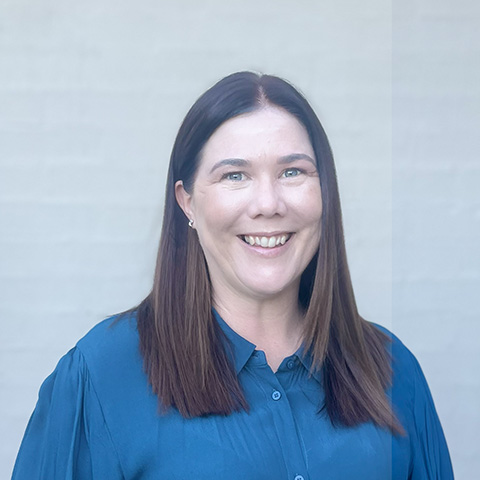 Dr Sally Zingelman - Postdoctoral Researcher
Dr Sally Zingelman - Postdoctoral Researcher
Sally is a postdoctoral research fellow and speech pathologist. Sally has clinical and research experience working with people with communication support needs across the lifespan in health, private practice, and education settings. She completed her PhD at QARC exploring the interpretation of aphasia outcome measures for use in clinical care and economic evaluations.
Within the QARC team, Sally contributes to research projects that establish interpretive values for key outcome measures used in post-stroke aphasia rehabilitation. She also supports the development of a co-designed communication partner training programme for people working in aged care. Sally’s research interests include the use of patient-reported outcome measures and community participation for people with communication support needs living outside of metropolitan areas.
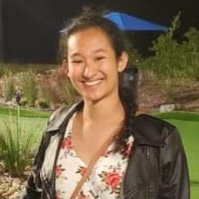 Savita Datta - Research assistant
Savita Datta - Research assistant
Savita is a research assistant with a Bachelor of Engineering (Software) (Honours) and Bachelor of Arts (Linguistics, German). She has worked on several projects as a software developer, with an emphasis on frontend development and UI accessibility.
Research affiliates
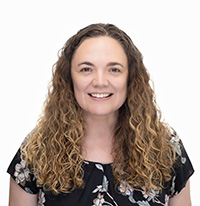 Dr Lisa Anemaat - Postdoctoral researcher
Dr Lisa Anemaat - Postdoctoral researcher
Lisa is a speech pathologist and conjoint research fellow with Metro North Health and The University of Queensland and works with the Queensland Aphasia Research Centre (QARC). Her research focuses on examining experiences, determining priorities, co-designing meaningful solutions with lived-experience experts, and improving consumer partnerships. Lisa’s PhD research used a novel application of Experience-Based Co-Design, to co-design aphasia services for QARC. Her research explored the unmet needs and priorities of stroke survivors to inform service development across remote, regional and metropolitan areas of Queensland. As the Consumer and Community Involvement (CCI) conjoint research fellow, she leads a program of research focussed on CCI in research approaches and exploring ways to improve these partnerships.
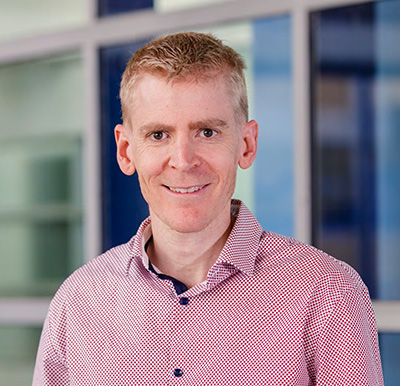 Associate Professor Tony Angwin - Head of Speech Pathology, SHRS, UQ
Associate Professor Tony Angwin - Head of Speech Pathology, SHRS, UQ
Anthony Angwin is a speech pathologist and associate professor in the School of Health & Rehabilitation Sciences at The University of Queensland. Anthony’s research themes include: (1) understanding the brain mechanisms that underpin language processing and learning, and (2) developing technology to support communication and therapy outcomes for people living with aphasia.
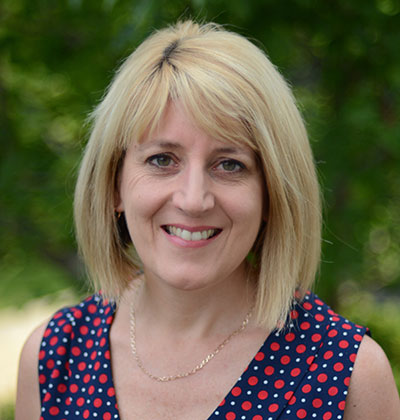 Dr Claire Bennington - Postdoctoral Research Fellow
Dr Claire Bennington - Postdoctoral Research Fellow
Claire graduated as a speech and language therapist (speech pathologist) from City University, London, in 1990. She has extensive experience working with adults with acquired communication and swallowing disorders in a range of clinical settings in the UK and Australia but has a particular interest in aphasia. She completed her MSc in Human Communication, again at City University in 1997.
Claire is the current Chairperson of the Australian Aphasia Association (AAA), having been the Deputy Chair for three years, Secretary for 16 months and general board member for 11 months. She is passionate about working with people with lived experience and this was a core component of her PhD completed through The University of Queensland in 2025. Claire’s PhD research involved international surveys and consensus methods to codesign a unified aphasia awareness campaign. Her goal now is to make that campaign a reality through extensive national and international collaborations and bring about a much-needed societal response to improve the lives of the millions of people living with aphasia world-wide.
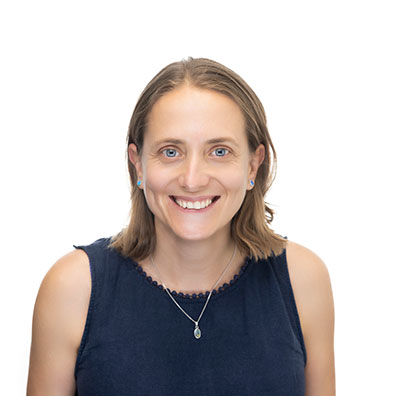 Dr Sonia Brownsett - Postdoctoral researcher
Dr Sonia Brownsett - Postdoctoral researcher
Sonia is a Speech Pathologist and Neuroscience researcher. Sonia has worked across hyperacute, acute and rehabilitation services in the UK’s National Health Service. She completed her PhD at Imperial College London where she investigated the contribution of cognitive brain networks to language recovery after stroke. As a postdoctoral fellow at UCL, she co-developed, alongside people with aphasia, ListenIn, an evidence-based therapy app that uses gamification techniques to deliver a high dose.
Her current research interests include the neurobiology of language and language recovery, the dose of aphasia rehabilitation, the use of neuromodulation techniques to support language recovery. Sonia’s research includes people with all types of aphasia and currently focuses on language difficulties after stroke, epilepsy, and brain tumours. Sonia is currently leading the neurobiological predictors project within QARC.
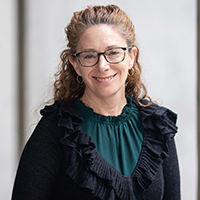 Penni Burfein - Advanced Speech Pathologist and Team leader (Neurorehabilitation), RBWH
Penni Burfein - Advanced Speech Pathologist and Team leader (Neurorehabilitation), RBWH
Penni is a Certified Practicing Speech Pathologist within the Metro North Hospital and Health Service (MNHHS). She completed her degree in Speech Pathology at The University of Queensland (UQ) in 1996 and has worked across Queensland in acute hospital, rehabilitation and community roles since graduation. She has specialised in working with people who have acquired communication and swallowing disorders in a rehabilitation context and has a passion for the support and implementation of aphasia research into the clinical environment with UQ research partners. Penni is currently enrolled in a research higher degree at UQ investigating return to work following post stroke aphasia concurrently with her clinical role.
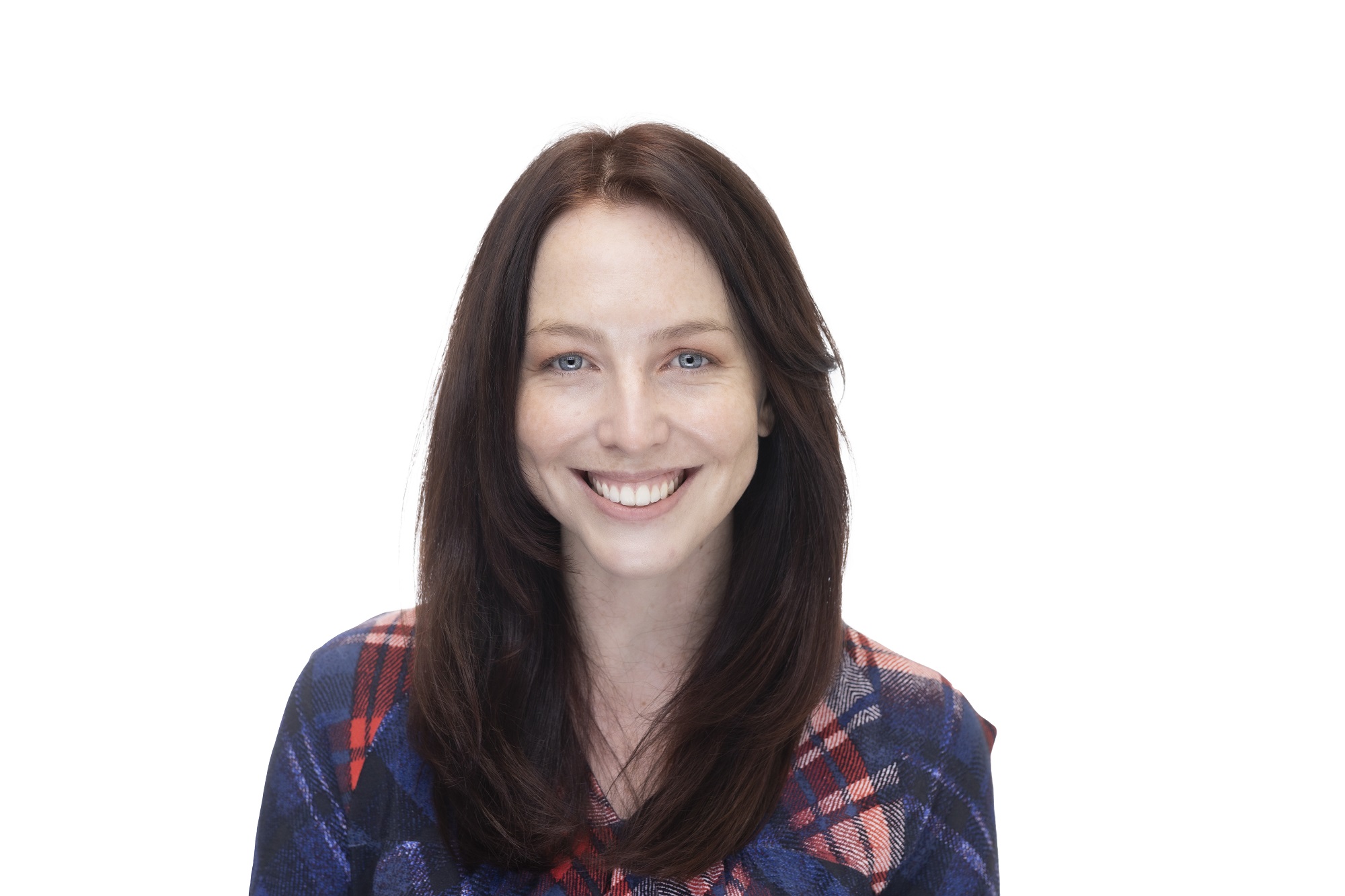 Dr Megan Isaacs - Postdoctora Researcher
Dr Megan Isaacs - Postdoctora Researcher
Megan is a post-doctoral research fellow who graduated with a Bachelor of Speech Pathology (Honours Class I with University Medal) from The University of Queensland in 2012. Megan’s PhD was awarded in 2017, and explored the neural substrates of language processing in Parkinson’s disease using a combination of behavioural tasks and fMRI. She has supported multiple projects within the UQ Centre for Clinical Research, UQ School of Health and Rehabilitation Sciences, and Southern Cross University in the capacity of research officer / assistant, including exercise-enhanced language learning in health ageing, technology-enhanced treatment for aphasia in student clinics (CommuniCATE), clinical implementation of Communication Partner Training for aphasia, and development of minimum reporting standards for aphasia research (DESCRIBE). Megan is currently a post-doctoral research fellow on an MRFF-funded study that aims to develop a novel smartphone application to allow people with aphasia to self-manage their communication therapy (LifeCHAT).
 Dr Asmita Manchha - Postdoctoral Research Fellow
Dr Asmita Manchha - Postdoctoral Research Fellow
Dr Asmita Manchha is a Postdoctoral Research Fellow. At the heart of Asmita’s research is her passion for developing resources to empower aged care employees and promote a greater recognition of the aged care sector. Asmita’s doctoral research examined the nature and consequences of the stigma of working in aged care.
At QARC, Asmita works on the Conversations about Care (an Aged Care research project), leading a work stream that focuses on exploring ways in which we can identify and support older adults’ communication needs.
Dr Marie-Pier McSween
Marie is a research development advisor and speech-language pathologist from Canada. Her research interests include novel word learning across the lifespan and post-stroke aphasia rehabilitation. To date, Marie's research has focused on examining the acute effects of exercise and the influence of white noise and dopamine modulation (using Levodopa) on new word learning in healthy adults using neuroimaging. Marie's research has also focused on evaluating the implementation of the Comprehensive High-dose Aphasia Treatment (CHAT) program and the use of animal-assisted services to enhance outcomes of people with aphasia and their family members. As a research development advisor in Canada, Marie plays a strategic and supportive role in helping researchers secure funding, build collaborations and enhance the impact of their research.
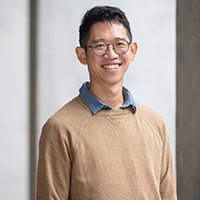 Dr Zheng Yen Ng - Postdoctoral Researcher
Dr Zheng Yen Ng - Postdoctoral Researcher
Zheng is a Postdoctoral Research Fellow at QARC, School of Health and Rehabilitation Sciences, The University of Queensland. He previously worked in the United Kingdom as Research Coordinator and supported family social events at a charity for people with hearing loss. His PhD research investigated family-centred care in healthcare services for families of young children with hearing loss and diverse language and cultural backgrounds. Within the QARC team, Zheng conducts research on care and experiences of people living with aphasia and people living with dementia. He aims to support individuals and families navigating healthcare services, particularly culturally diverse communities, through evidence-based qualitative research and resource development.
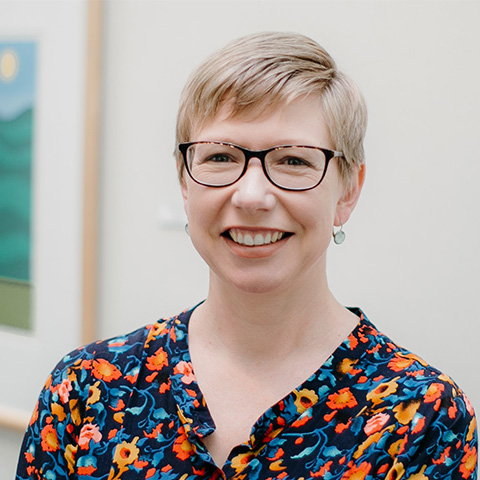 Dr Annette Rotherham
Dr Annette Rotherham
Dr Annette Rotherham is a New Zealand-based researcher whose PhD at The University of Queensland explores the nuanced dynamics of communication in couples where one partner has aphasia—a language disorder often resulting from stroke or brain injury. Her work bridges aphasia outcome measurement development, relationship psychology, and rehabilitation science, with a strong emphasis on community engagement in Aotearoa.
Dr Rotherham’s doctoral research investigates how “successful conversation” is defined and measured in close relationships affected by aphasia. Her research aims to develop an ecologically valid, dyadic patient-reported outcome measure (PROM) that reflects the lived experience of couples and family members navigating aphasia together.
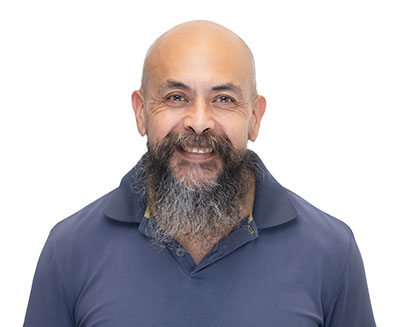 Dr Peter Worthy - Postdoctoral researcher
Dr Peter Worthy - Postdoctoral researcher
Peter is an interaction designer with a specific focus on the design of technology using human-centred and co-design approaches. Peter worked as a lawyer for over 15 years before completing a Master of Interaction Design at UQ. His PhD research looked at the socio-technical nature of internet of things technology (such as smart homes) and methods to understand how the design of that technology relates to human values. Recently, Peter has been working on the Florence Project funded by the ARC Centre of Excellence for the Dynamics of Language. The Florence Project worked with people living with dementia to design technology to support communication needs. His research interests include the design of technology to better meet people’s needs and expectations as well as working with co-design methodologies to support technology design. Peter is involved in the LifeCHAT project focused on the design of the technology to support LifeCHAT.
The University of Queensland
- Professor Emerita Linda Worrall
- Professor Katie McMahon
- Dr Rachelle Pitt
- Dr Tracy Roxbury
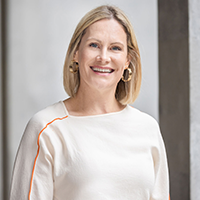 Emma Caird - Project Manager
Emma Caird - Project Manager
Emma is a Speech Pathologist who completed her degree in Speech Pathology at The University of Queensland in 2006. She has worked clinically primarily within acute hospital settings in Queensland, New South Wales and the United Kingdom with clinical interests in the management of swallowing and communication disorders in acquired brain injury.Since 2013 Emma has worked at The University of Queensland supporting and managing research projects and initiatives. Emma enjoys working collaboratively with clinicians and researchers to achieve common goals and outcomes.
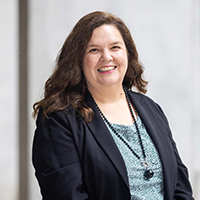 Adele Coleman - B.SpPath(Hons), Certified SPA member
Adele Coleman - B.SpPath(Hons), Certified SPA member
As a Certified Practicing Speech Pathologist at Queensland Aphasia Rehabilitation Centre (QARC), Adele brings a unique blend of clinical expertise, research skills, and broad customer service experience to the team. With a Bachelor of Speech Pathology with first class Honours (Aphasia related) from The University of Queensland (2011), Adele has gained extensive experience working in Queensland community, hospital, and research settings over the past 12 years.
As a former training and development manager in a sizable private Brisbane allied health practice, Adele has also developed exceptional skills in training, mentoring, and customer service. Her diverse clinical and administrative background make her an asset to the QARC team. Adele's passion for developing improved rehabilitation treatment pathways and increased accessibility to services for people with aphasia has inspired her to join the QARC team, as a research Speech Pathologist. Her ability to appreciate the complex needs of clients with aphasia, and to communicate processes and research findings in a clear and concise manner, makes her an excellent advocate for QARC’s research participants.
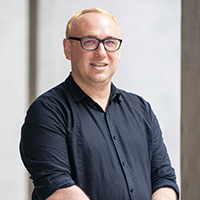 Ryan Deslandes - Research assistant
Ryan Deslandes - Research assistant
Ryan is a Research Assistant with QARC. He contributes full-stack web development skills and manages cloud resources for the Bridging the Digital Divide, AphasiaFit and the Aphasia Research Library projects.
He has a Diploma of Science (minoring in Computer Science, UQ), a Graduate Certificate in Creative Industries (QUT) and a Bachelor of Science (majoring in Mathematics, UQ). He has a particular interest in Free, Libre, and Open Source technology. He previously worked as a Research Assistant with the Florence Project (UQ) helping develop technology for people with dementia.
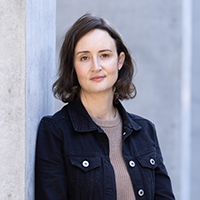 Pippa Evans - Research Speech Pathologist
Pippa Evans - Research Speech Pathologist
Pippa is a Speech Pathologist, who has a Bachelor of Languages and Linguistics from Griffith University and a Master of Speech Language Pathology from the University of Sydney (USYD). As a new graduate, she worked as a research assistant investigating Childhood Apraxia of Speech at USYD.
More recently, Pippa has worked clinically within health services across Western Sydney and at Rockhampton Hospital. She has experience working with people with swallowing disorders, dysarthria and aphasia across acute, subacute and day therapy settings. She is passionate about educating student speech pathologists and adapting rehabilitation to suit different patients and service delivery models.
Since working at QARC, Pippa has been a research Speech Pathologist in many projects which aim to improve treatment for people with post-stroke aphasia, including the AMP project (Aphasia Recovery with Music Exposure), LifeCHAT, Bridging the Digital Divide.
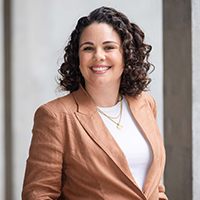 Kori Ramajoo - Research Speech Pathologist
Kori Ramajoo - Research Speech Pathologist
Kori is a Certified Practising Speech Pathologist, with a Bachelor of Psychology (Honours) and a Master of Speech Language Pathology, from The University of Queensland.
Kori has worked clinically with swallowing and communication disorders in adults living in the community and age care across metropolitan and regional NSW and QLD. She has a passion for research and has worked as a research officer on studies investigating the neurobiological basis of language using neuroimaging in healthy and clinical populations. She has joined the QARC Aphasia Tech Hub as a research speech pathologist to work with people living with aphasia and significant others to improve their access to technology. Her role also involves providing information to clinicians on the evidence-base behind therapy programs delivered through technology devices.
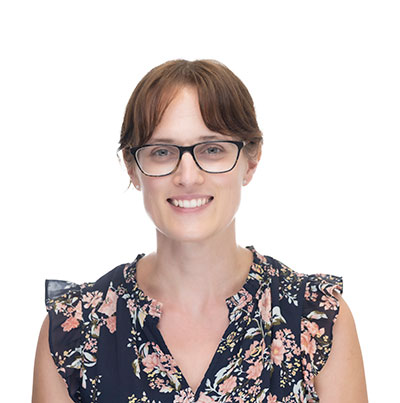 Margot Sexton - Admin Officer
Margot Sexton - Admin Officer
Margot joined the QARC team in 2021 as the QARC Administrative Officer.
Margot has a varied background in allied health and research and has worked as a research assistant and administrative officer in university research centres. She is the friendly voice that will most likely greet you when you call QARC.
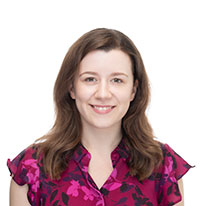 Hannah Wedley - Research Speech Pathologist
Hannah Wedley - Research Speech Pathologist
Hannah is a Certified Practicing Speech Pathologist, who has completed a Bachelor of Speech Pathology (Honours with University Medal) from The University of Queensland.
Hannah has worked clinically within health services across metropolitan and regional Queensland. She has experience in working with people with aphasia across acute, subacute and day therapy settings and is passionate about advocating for increased accessibility to services. She is interested in how rehabilitation research translates to clinical practice and has joined the QARC team as a research Speech Pathologist, to work on TeleCHAT and CHAT feasibility studies.
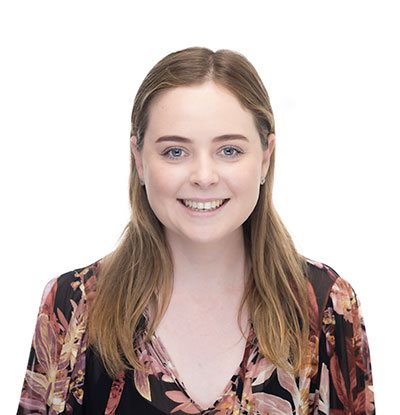 Bridget Burton
Bridget Burton
Bridget is a PhD candidate at the Queensland Aphasia Research Centre. She obtained her Bachelor of Speech Pathology (Hons I) from The University of Queensland in 2018 and has experience working across both clinical and research settings.
Bridget’s PhD sits within the MRFF research project ‘Unspoken, Unheard, Unmet: Improving Access to Preventative Health Care through Better Conversations about Care.’ She is supervised by Dr Kirstine Shrubsole and Dr Michelle King. Bridget has a keen interest in health policy. Her research specialises in guideline development and service improvement through collaboration and engagement with health and aged care consumers.
Anna Humphreys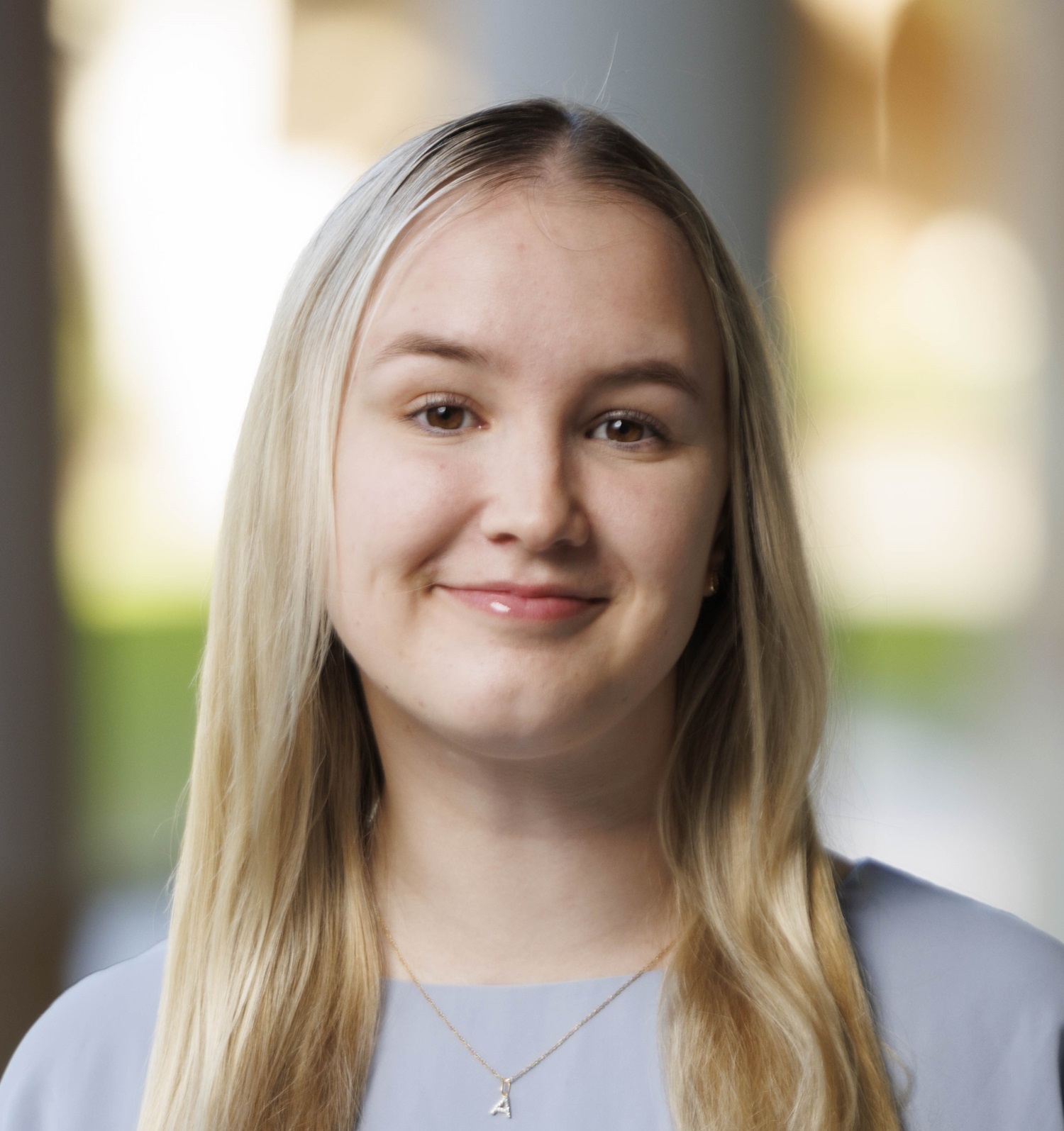
Anna is a speech pathologist who commenced her PhD with the Queensland Aphasia Research Centre (QARC) in 2024. She has experience working clinically with adults with communication and swallowing disorders in acute and inpatient rehabilitation settings at a tertiary hospital in Queensland. Anna enjoys working as a clinical educator, research assistant and casual academic at UQ.
Anna’s research interests include post-stroke aphasia rehabilitation, intensive, comprehensive aphasia programs and implementation of research evidence into clinical practice. Anna's PhD will evaluate outcomes of the Comprehensive High-Dose Aphasia Treatment (CHAT) program compared to current speech pathology clinical practices in a multi-site implementation-effectiveness trial.
Josephine (Joey) Mabin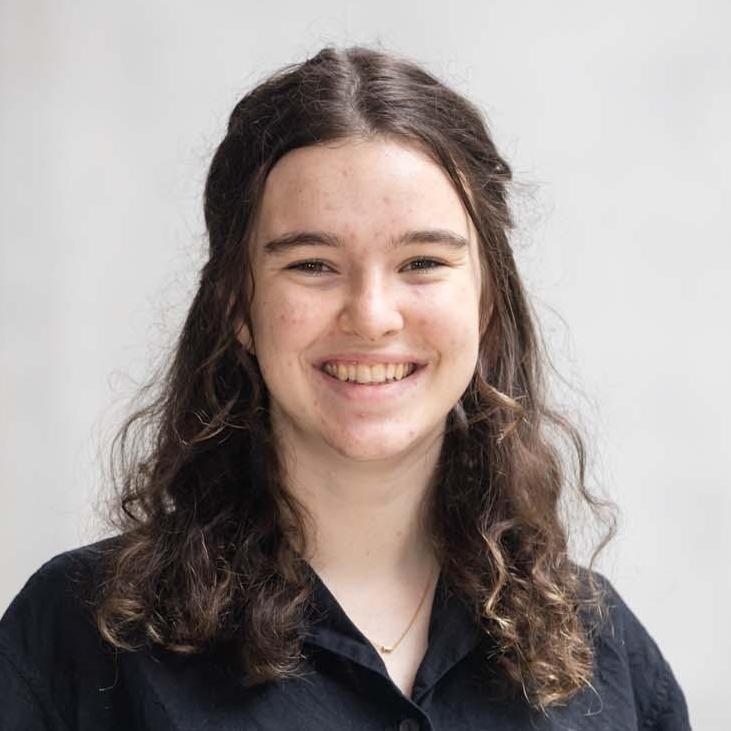
Joey is a speech pathologist and PhD student at the Queensland Aphasia Research Centre. Her PhD research investigates multilingual aphasia therapy approaches, and experiences of multilingual people with aphasia. Joey’s areas of interest include language rehabilitation, multilingualism, and research and advocacy which enables evidence-based, equitable care for historically marginalised or disadvantaged populations. She is passionate about inclusion and equitable healthcare service delivery. Joey’s research experience also includes software-based aphasia rehabilitation approaches and LGBTQ+ workplace inclusion.
Woon-Ki Chew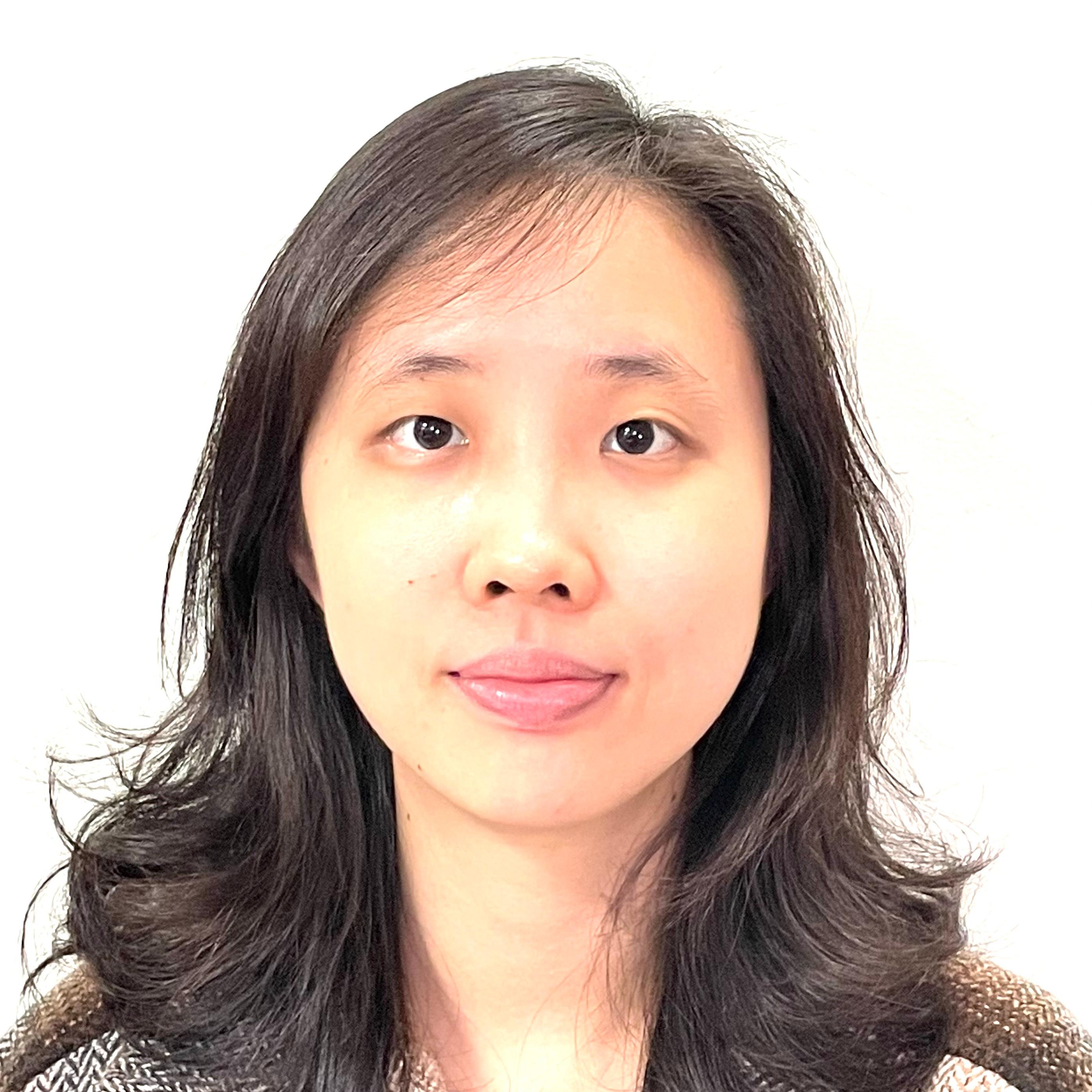
Woon Ki is a PhD candidate at the Queensland Aphasia Research Centre and a Registered Speech Pathologist in Singapore. She completed her Bachelor of Speech Pathology (Honours Class I) at The University of Queensland and has clinical experience working with adults with acquired swallowing and communication disorders across both acute and community-based settings, predominantly focusing on neurorehabilitation.
Woon Ki is passionate about evidence-based practice in aphasia management and facilitating knowledge translation to optimise outcomes for people with aphasia. Her PhD aims to evaluate the treatment fidelity of the Comprehensive High-dose Aphasia Treatment (CHAT) program in clinical settings as part of a NHMRC-funded research trial. She is supervised by Dr Kirstine Shrubsole, Professor David Copland, Professor Emma Power and Dr Marie-Pier McSween.
Helen Wallace
Helen Wallace is a Certified Practising Speech Pathologist. She has worked with people with aphasia for many years, in the UK and Australia. She is completing her PhD at QARC, looking at returning to driving for people for aphasia. She completed her Master’s in Speech Pathology in the UK at the University of Sheffield and has a Speech Pathology lecturer position at the University of Adelaide.
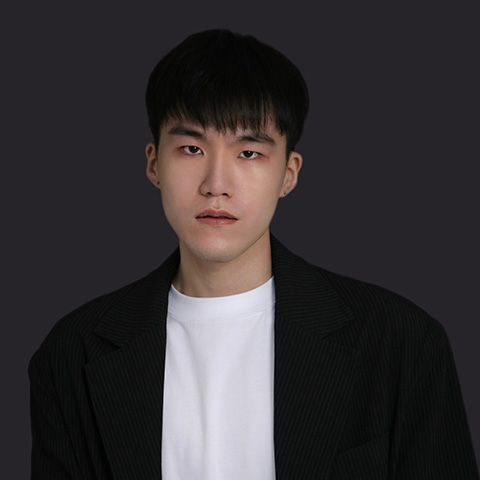 Yifei (Yves) Yang
Yifei (Yves) Yang
Yves is a PhD student and casual academic/ research assistant at The University of Queensland. He got his Master of Interaction Design degree from The University of Queensland and a Bachelor of Digital Business degree from RMIT University.
His PhD is using technology to improve communication issues between residential aged-care workers and the elderly. He is supervised by Dr. Peter Worthy and Associate Professor Sarah Wallace. At QARC, Yves works on the Better Conversation about Care project.
His other research is about using digital music instruments to run music therapy for people with post-stroke aphasia. His research interests include making technology easier to use for all human beings.
Marissa Stone
Marissa is a PhD candidate at The University of Queensland and a Certified Practicing Speech Pathologist. Her PhD research is investigating quality of care and outcomes for people with post-stroke aphasia in Australia. Her advisory team includes Associate Professor Sarah Wallace, Professor David Copland, and Professor Monique Kilkenny. Marissa has worked clinically in acute stroke and neurosurgery across a range of public health services. She has also completed a clinical fellowship and held adjunct research roles. Marissa’s areas of interest include access and equity of care; the intercept between quality improvement and research; and the translation of evidence into practice to improve patient care and outcomes.
Advisory committee
The Queensland Aphasia Research Centre (QARC) Advisory Committee will provide advice regarding the development of the centre, identify priority areas and promote integration of QARC, Metro North Hospital & Health Service and wider Queensland health service operations.
- Professor David Copland (Chair) – QARC Director, UQ.
- Professor Emerita Linda Worrall – UQ.
- Ms Andrea Abel – UQ Clinic Manager, UQ.
- Dr Clare Burns – Research Coordinator and Advanced Speech Pathologist, The Royal Brisbane and Women's Hospital
- Mr Peter Buttrum – Executive Director, Allied Health Professions, The Royal Brisbane and Women’s Hospital
- Ms Alisha Dicton – Senior Speech Pathologist, Townsville Hospital and Health Service
- Ms Kate Hacking – Director of Speech Pathology, Metro North HHS Community and Oral Health.
- Ms Nicky Graham – Director of Speech Pathology and Audiology, The Royal Brisbane and Women's Hospital
- Professor Michael O’Sullivan – Neurologist, UQCCR and Staff specialist, The Royal Brisbane and Women's Hospital
- Professor Miranda Rose – Director, CRE Aphasia.
- Ms Kylie Short – Director of Speech Pathology and Audiology, Surgical Treatment and Rehabilitation Services (STARS)
- Associate Professor Sarah Wallace – NHMRC Emerging Leadership Fellow, UQ
- Dr Claire Bennington – Chair of the Australian Aphasia Association
- Ms Stacey Rand – Speech Pathologist, Caboolture Hospital
Consumer Advisory Group
Guiding vision
To deliver solutions that optimise the lives of people with aphasia.
To do this we need to:
- Know the views of people living with aphasia.
- Hear their experiences.
- Include them in forming research ideas and projects.
- Include them in decision making about QARC.
Purpose
The purpose of the Consumer Advisory Group is to ensure that QARC works together with:
- People with aphasia
- Family members
- Friends
Aims
The aims of the Consumer Group are to:
- Provide advice on how to develop the centre.
- Point out key areas to focus on.
- Guide research projects.
- Support interests of consumers.
- Provide advice on how to engage people with aphasia
Group members
The group includes:
- David Copland
- Bruce Aisthorpe
- Lillian Taylor
- Esther Kaloci
- Kate O'Brien
- Wendy Hurley
- Amy Jennings
- Pat Hipwell
- Kim Beesley
- Gujji Muthuswamy
- Peter Roberts
- Scott Harding
- Sean O'Brien
- Penni Burfein (Queensland Health SP representative)
